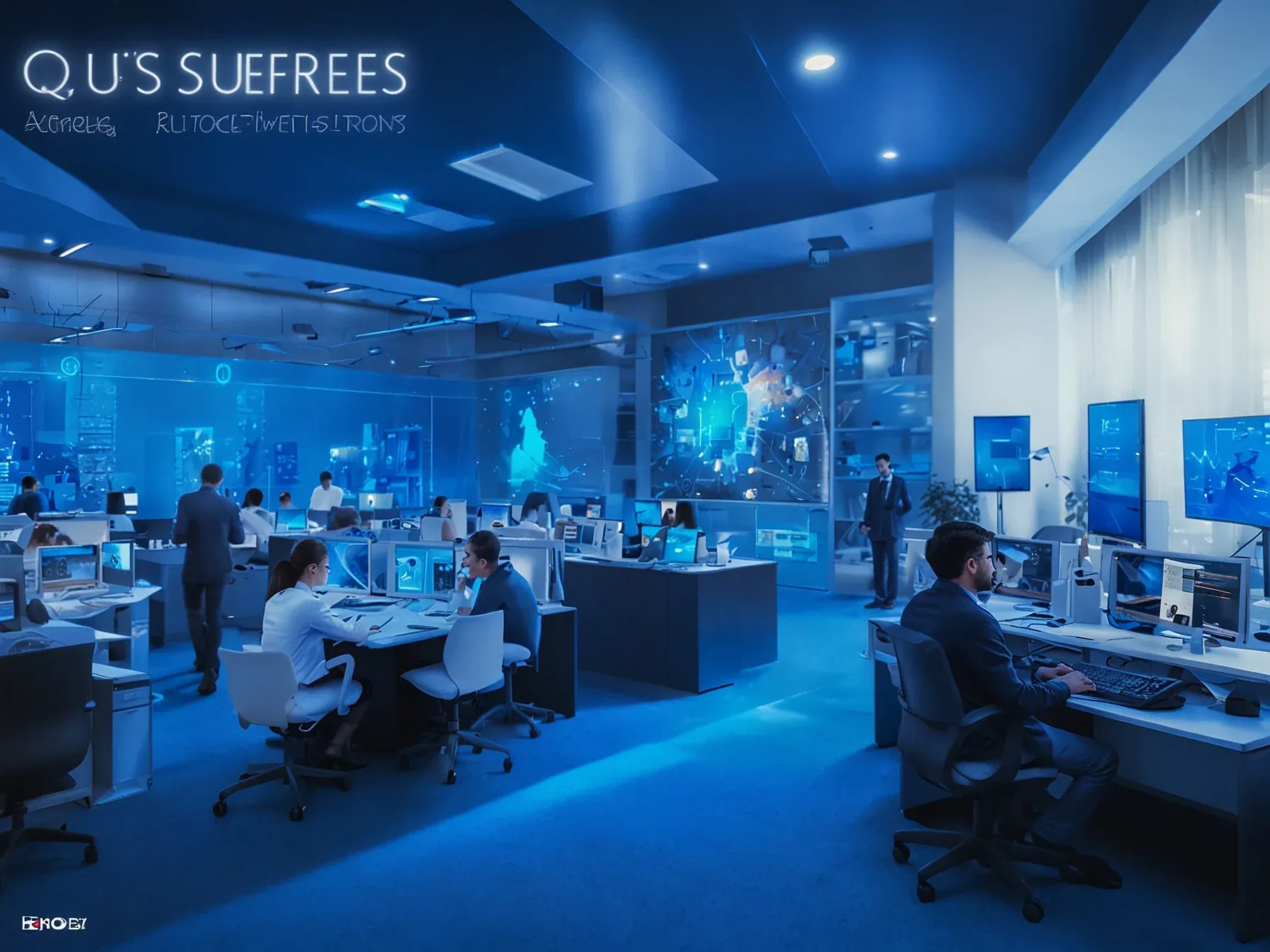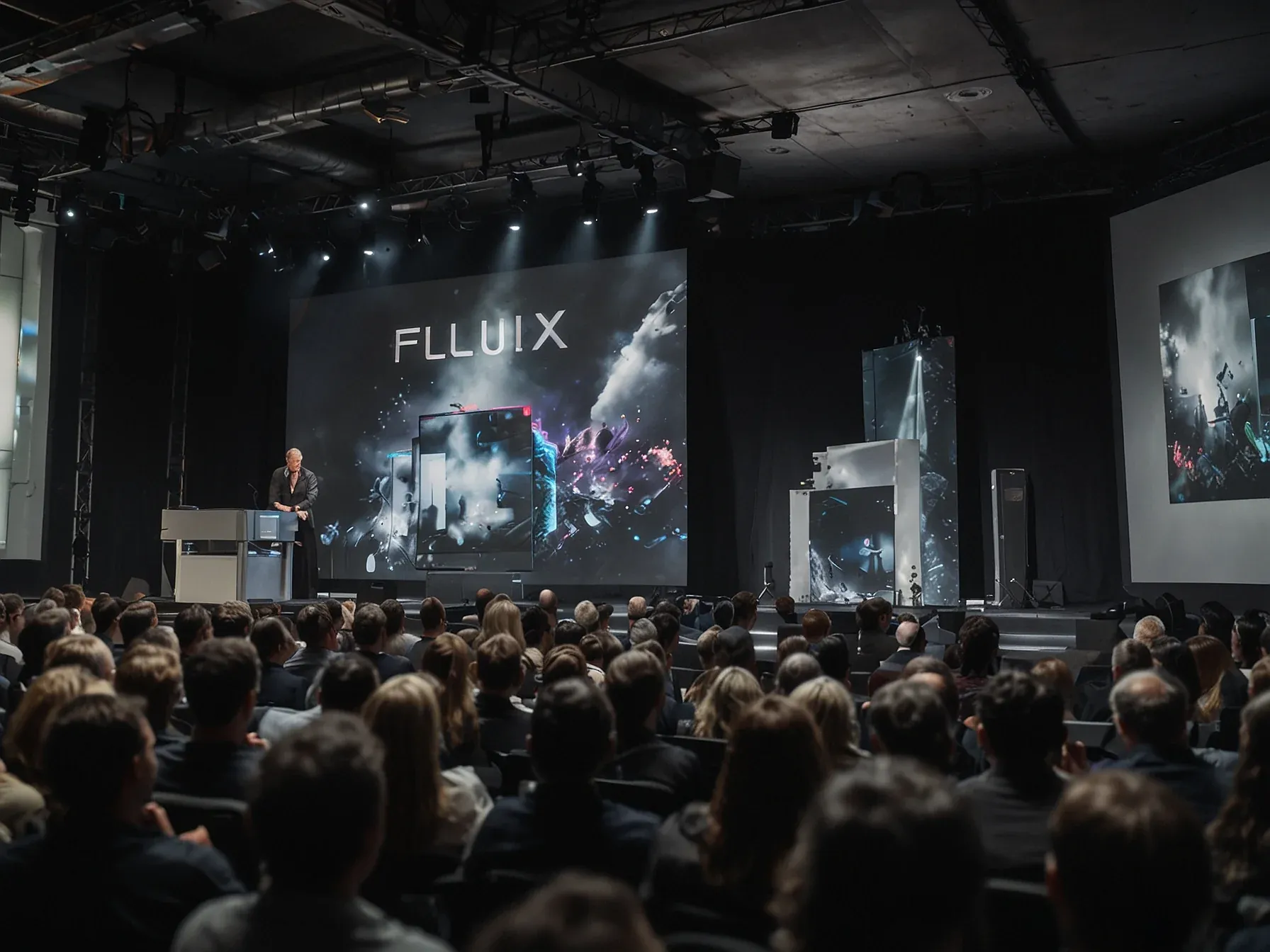
Editorial illustration for AI Transforms Global Capability Centers, Birthing New 'Assisted Professionals' in India
AI Transforms Indian GCCs, Boosting Workforce Productivity
Indian firms follow IBM as AI-driven GCCs grow, creating assisted professionals
India's technology landscape is undergoing a radical transformation, with global capability centers (GCCs) rapidly adopting artificial intelligence to reimagine workforce productivity. Major firms are moving beyond traditional outsourcing models, using AI to create more sophisticated professional roles that blend human expertise with intelligent automation.
The shift is happening faster than many expected. Companies are discovering that AI isn't just about replacing workers, but augmenting their capabilities in unusual ways.
Tech giants like IBM are leading this charge, showing how strategic AI integration can fundamentally redesign professional work. From banking to pharmaceuticals, industries are witnessing a profound reimagining of talent strategies.
But what does this mean for India's massive professional services sector? The emerging model suggests a future where professionals work alongside AI, not against it. Intelligent systems are becoming collaborative partners, enhancing speed, accuracy, and strategic thinking across multiple domains.
The real story isn't about technology replacing humans. It's about creating a new class of hyper-empowered professionals who can use AI as a powerful professional companion.
The approach also extends to complex functions where AI intersects with domain expertise, creating a new class of "assisted professionals" across banking, pharma, retail, and more. Kapil Joshi, CEO at Quess IT Staffing told AIM that "High-density AI teams give us faster go-to-market, superior user experiences, and significantly higher productivity and scalability." Simply put, the organisations that concentrate AI talent move faster, innovate better, and win more, he added. The EY India GCC Pulse Survey 2025 that AIM accessed revealed that India-based GCCs are moving from experimentation to enterprise-scale adoption of AI, with 58% currently investing in Agentic AI and 83% in GenAI.
India's global capability centers are quietly reshaping professional work through AI-powered assistance. The emerging model transforms traditional roles across industries like banking, pharmaceuticals, and retail by integrating domain expertise with artificial intelligence.
Firms are discovering that concentrated AI talent accelerates idea and productivity. These "assisted professionals" represent more than just technological enhancement - they're a strategic workforce evolution.
Kapil Joshi from Quess IT Staffing highlights the tangible benefits: faster market entry, improved user experiences, and unusual scalability. The approach suggests AI isn't replacing workers, but augmenting their capabilities in sophisticated ways.
This trend signals a significant shift in how organizations approach talent and technological integration. Global capability centers are no longer just outsourcing hubs, but idea laboratories where human expertise and AI collaborate smoothly.
The potential is clear: companies investing in high-density AI teams are positioning themselves to move faster and compete more effectively. Still, the long-term implications remain an unfolding narrative in the global professional landscape.
Further Reading
- India Global Capability Centers Statistics: Latest Numbers ... - Flexiple
- CGI named a Major Contender in Everest Group's 2025 PEAK Matrix® Assessments for GCC set-up and transformation capabilities in India - CGI
- Why India Is Becoming the Global GCC Hub? | MachineCon ... - AIM Network
- Lantern Pharma Announces Establishing an A.I. Center of Excellence in India to Industrialize the RADR® Platform and Accelerate Global Development Opportunities with BioPharma Companies - Business Wire
- Beyond automation: How 2025 made enterprises take agentic AI seriously - Forbes India
Common Questions Answered
How are global capability centers in India transforming professional roles through AI?
Global capability centers are using AI to create 'assisted professionals' who blend human expertise with intelligent automation. This approach is moving beyond traditional outsourcing by integrating domain knowledge with artificial intelligence across industries like banking, pharmaceuticals, and retail.
What competitive advantage do high-density AI teams provide to organizations?
According to Kapil Joshi, CEO of Quess IT Staffing, high-density AI teams enable faster go-to-market strategies, superior user experiences, and significantly higher productivity and scalability. Organizations that concentrate AI talent can innovate more quickly and gain a strategic workforce advantage.
What is the key shift in how companies are viewing AI's role in professional work?
Companies are discovering that AI is not simply about worker replacement, but about augmenting human capabilities and creating more sophisticated professional roles. The emerging model focuses on integrating artificial intelligence as a collaborative tool that enhances domain expertise and productivity.




